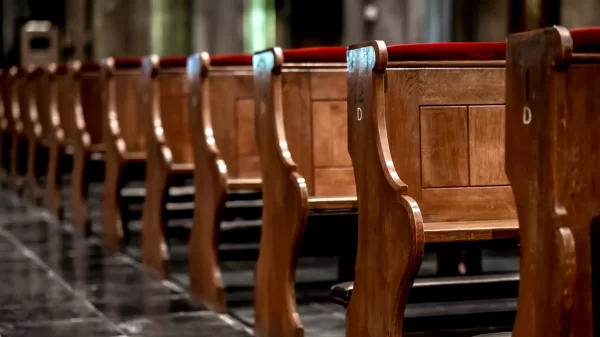|
Getting your Trinity Audio player ready...
|
On his first day back in the Oval Office, President Donald Trump issued an executive order declaring that not all children born on American soil will be automatically granted U.S. citizenship under his administration. Specifically, children of parents who are either undocumented immigrants or in the country on temporary visas will no longer be granted “birthright citizenship” — revoking a precedent which has been in place since the passage of the 14th Amendment in 1868.
Since then, the Asylum Seeker Advocacy Project, the immigrant services organization CASA, and the Institute for Constitutional Advocacy and Protection at Georgetown Law have filed a lawsuit on behalf of their members and five pregnant women who are challenging the order. Additionally, 22 states have also sued to block the order, declaring it a violation of the 14th Amendment and the U.S. Constitution.
Despite these ongoing legal challenges, U.S. Sens. Katie Britt, R-Ala., and Lindsey Graham, R-SC, have introduced the Birthright Citizenship Act of 2025 to effectively codify Trump’s executive order into law.
According to an official press release from Sen. Britt, the bill looks to end “the practice of granting citizenship to both the children of illegal aliens and the children of individuals in the U.S. on temporary visas, also known as birthright citizenship.”
Specifically, the bill would restrict birthright citizenship to children of an individual who is either: “a citizen or national of the U.S., a lawful permanent resident of the U.S., or an alien performing active service in the armed forces.” Importantly, if passed, the bill would not retroactively remove birthright citizenship from children who had already been born on U.S. soil before its passage.
While Canada, Mexico, and nearly all of Central and South America have unrestricted birthright citizenship policies, much of the rest of the world has restrictions on birthright citizenship or no such policy at all. Belgium, Finland, France, Germany, Greece, Italy, Luxembourg, the Netherlands, Portugal, Spain, Sweden, and the United Kingdom are all members of NATO and have restricted birthright citizenship.
In her press release, Britt criticized unrestricted birthright citizenship as being an incentive for illegal immigration into the United States and claimed that the policy is in fact not protected by the 14th Amendment.
“The promise of American citizenship should not incentivize illegal migration, but that’s exactly what has happened for far too long,” Britt said. “It’s time to fix this. Senator Lindsey Graham’s and my Birthright Citizenship Act would codify President Trump’s commonsense stance and end the abuse of birthright citizenship that I do not believe is consistent with the original meaning of the 14th Amendment’s Citizenship Clause. This will protect our nation’s sovereignty, disincentivize illegal migration, and ensure America’s citizenship practices are stronger and better aligned with peer countries around the globe.”
Sen. Graham echoed Britt’s comments in his own statement.
“It is long overdue for the United States to change its policy on birthright citizenship because it is being abused in so many ways,” Graham said. “One example is birth tourism, where wealthy individuals from China and other nations come to the United States simply to have a child who will be an American citizen. When you look at the magnets that draw people to America, birthright citizenship is one of the largest. I also appreciate President Trump’s executive order to address birthright citizenship. It is time for the United States to align itself with the rest of the world and restrict this practice once and for all.”
Britt’s press release criticized previous Democratic immigration policy before going on to echo Graham’s concern over “birth tourism.”
“The Biden-Harris Administration’s catch-and-release policies let migrants come into the U.S. illegally and stay for years, while enjoying many of the benefits of living in America. The Center for Immigration Studies estimates that in 2023, there were 225,000 to 250,000 births to illegal aliens, amounting to close to seven percent of total births in the U.S.,” reads the press release.
Britt then pointed to two specific instances of so-called “birth tourism,” although the examples appear to be fringe cases that are not necessarily representative of a more widespread trend. The Niskanen Center, a nonpartisan think tank, argues that the CIS’s estimates around birth tourism are “unreliable and egregiously exaggerated.”
“In September 2024, two individuals from California were found guilty in a ‘birth tourism’ scheme. Predominantly Chinese clients paid the operators of a ‘maternity hotel’ tens of thousands of dollars to come to the U.S. to give birth. And a 2022 Senate Homeland Security and Governmental Affairs Committee report found a birthing company catering to the wives of Russian oligarchs, celebrities, athletes, and public figures,” states Britt’s release.
Senator Britt has been active in introducing legislation to aid President Trump’s anti-immigration agenda. Britt’s Laken Riley Act was recently signed into law by the president, while the senator continues to sponsor the POLICE, WALL, and Justice for Victims of Sanctuary Cities Acts in Congress.























































